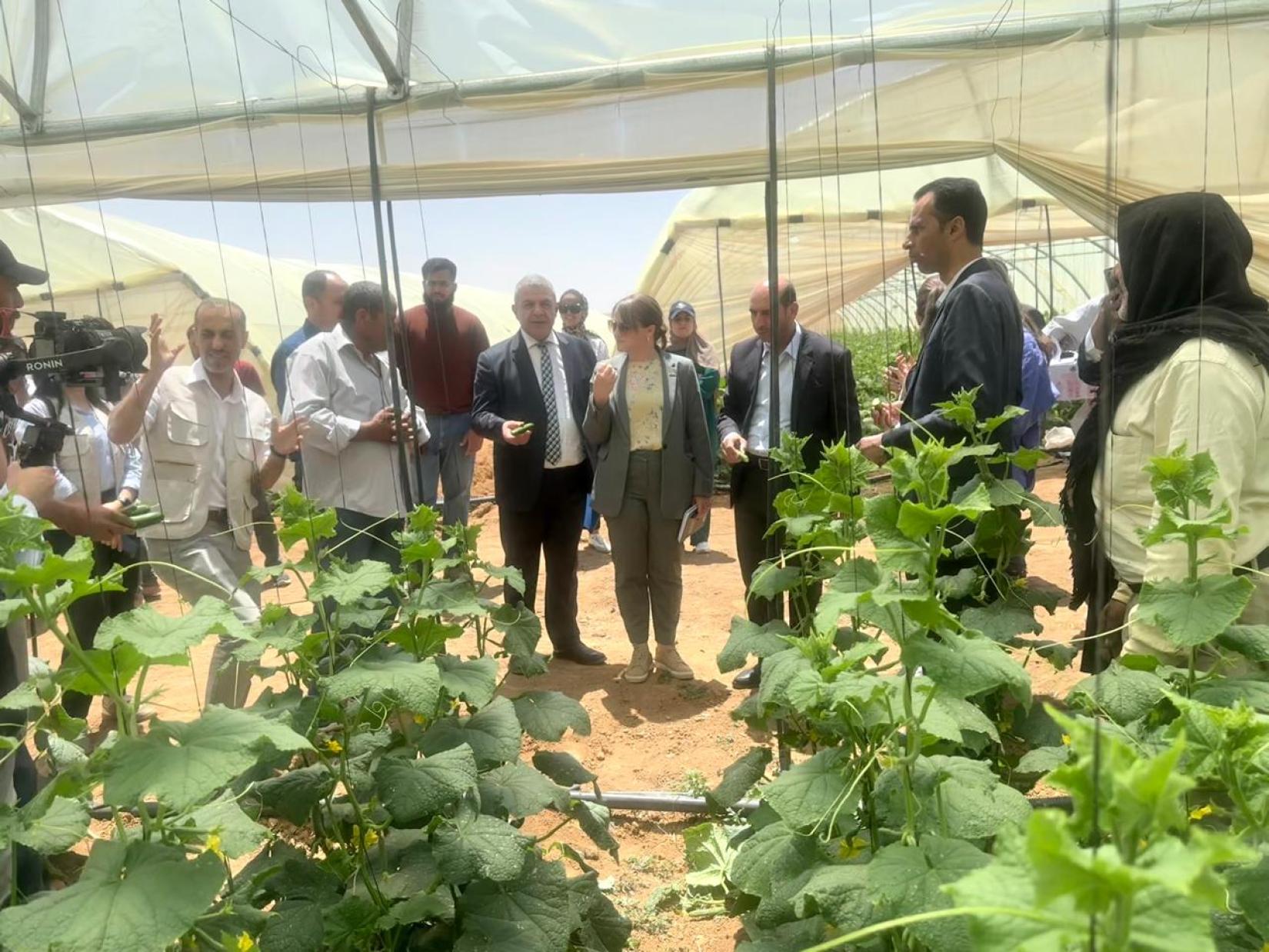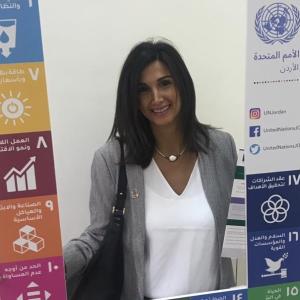FAO and the Norwegian Embassy visit project boosting food security and livelihoods in Jordan
02 June 2025
The primary objective of the visit was to review the on-the-ground progress of the project's second phase, engage with beneficiaries, identify key challenges, discuss solutions and recommendations, and explore ways to maximize the project's positive influence on participants' lives.
AMMAN, Jordan – The Food and Agriculture Organization of the United Nations (FAO) and the Norwegian Embassy, in close collaboration with the Ministry of Agriculture (MoA), visited Madaba Governorate to witness the progress of the project, "Transformation to more efficient, inclusive, resilient, and sustainable agrifood systems." This vital initiative, generously funded by the Royal Norwegian Government, aims to bolster food security and create decent work opportunities across Jordan.

The visit saw the participation of Eng. Khaled Alheisa, Assistant Secretary-General of the Ministry of Agriculture on behalf of the Minister of Agriculture, alongside Ms. Birgitte Sørgaard Wessel, Head of Development Cooperation at the Norwegian Embassy, and Eng. Nabil Assaf, FAO Representative in Jordan. A diverse group of project team and stakeholders and beneficiaries also attended, offering direct insights into the project's progress.
The primary objective of the visit was to review the on-the-ground progress of the project's second phase, engage with beneficiaries, identify key challenges, discuss solutions and recommendations, and explore ways to maximize the project's positive influence on participants' lives.
During the visit, Ms. Birgitte Sørgaard Wessel, Head of Development Cooperation at the Norwegian Embassy, said “This project highlights the value of partnerships that bring together government, international organizations, and local communities. It was encouraging to see how the project has supported both Jordanians and Syrians, women and men, and how it is contributing to more inclusive and practical support for small-scale farmers. We appreciate the openness of the farmers and local teams who shared their experience with us today, and we look forward to building on the lessons learned.”
The project strategically targets vulnerable farmers from both Jordanian host communities and Syrian refugee populations, where 111 farmers have already benefited from the Beneficiary Grants Program and the Technical Capacity Building Program for Farmers in Agribusiness Management. These interventions are designed to increase financial returns for participants and enhance the overall efficiency of their agricultural ventures.
Assistant Secretary-General of the Ministry of Agriculture, Engineer Khaled Alheisa, emphasized that all these activities are aligned with mitigating the impact of climate change and adapting to water scarcity. They also contribute to increasing household income, enhancing food security, creating job opportunities, and alleviating unemployment.
"This project, meticulously designed to foster more efficient, inclusive, resilient, and sustainable agrifood systems in Jordan, directly tackles our region's challenges," said Eng. Nabil Assaf, FAO Representative in Jordan.
"Given limited natural resources, population growth, and climate change, our aim is to manage these vital resources optimally, ensuring their sustainability and building greater resilience. This visit is essential for us to witness the project's progress firsthand, engage with our beneficiaries and partners, and explore every avenue to amplify its positive reach," he added.
This initiative plays a pivotal role in strengthening sustainable food security for Syrian refugees and Jordanian host communities. It integrates them into effective agri-food systems and builds capacities for decent job creation through integrated training. The project also champions the reduction of food loss and waste, a critical measure for advancing sustainability and rural development.
To meet beneficiary needs, the project has delivered comprehensive training, distributed essential tools, facilitated access to microfinance and markets, and created direct job opportunities.
Overall, the project has reached 850 beneficiaries: 50% women, 70% Jordanians, and 30% Syrian refugees residing in host communities.




